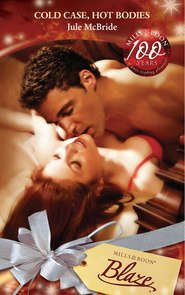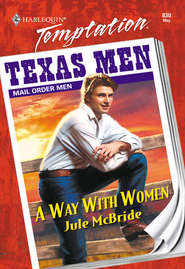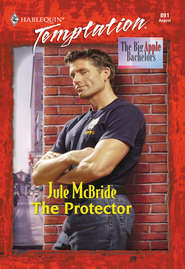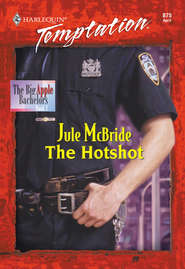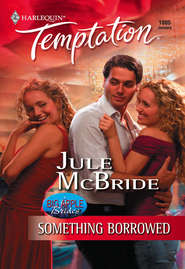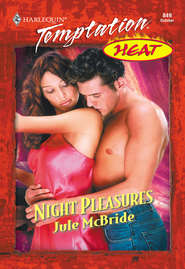По всем вопросам обращайтесь на: info@litportal.ru
(©) 2003-2025.
✖
The Pleasure Chest
Автор
Год написания книги
2018
Настройки чтения
Размер шрифта
Высота строк
Поля
Stede scanned the woods, then looked at Basil. He was staggering backward, clutching his chest, blood spilling through his splayed fingers. “Sweet Betsy Ross,” Stede cursed. Basil was a horse’s behind, but he didn’t deserve to die. His knees were buckling, though, and he fell backward. As he rolled onto his belly, Stede holstered his pistol and approached at a crouching run. Kneeling, he took Basil’s pulse.
“Dead.” There was still no sound from the woods. He shouted, “Who’s there?”
A heartbeat passed, then Lucinda Barrington ran into the clearing. With the color drained from her face and clad in a white cloak, she looked like a ghost, the vision marred only by the mud splattered around the dress’s hem, and the fact that her slender shaking hands held a flintlock pistol much like Stede’s; it probably belonged to her father.
Before he could say anything, another male voice sounded from the woods. “Lucinda!”
Ignoring the cry, she raced toward Stede, her hair flying behind her. “Hurry,” she urged as he registered her pursuer’s footsteps in the underbrush, then the thunder of horses’ hooves.
LUCINDA STARED at Basil, stricken. “I meant to scare him,” she whispered shakily. “But I didn’t mean to…” Tears sprang into her blue eyes. “I hit him, didn’t I? I really hit him! He was going to kill you, though. And since he didn’t, now my father will. Oh, Stede! Everyone thinks you and I…”
Are lovers, he finished mentally.
“You’ve got to get out of here!” She tossed a wild glance toward the trees. Men were approaching, probably with her father. He wouldn’t be the first to think his daughter’s virgin heart had been captured by a swarthy privateer, either.
“Basil hired that witch, Missus Llassa, too,” Lucinda raced on, her startled eyes still fixed on Basil. “He paid her to put a hex on you, Stede, just in case you killed Basil, instead of the other way around.”
His heart missed a beat. “Missus Llassa put a hex on me?”
“You know you don’t believe in hexes,” said Lucinda.
Stede knew no such thing. Besides, many claimed Missus Llassa’s evil magic could kill a man from a hundred miles away. There was no time to argue the point, though, because Jonathan Wilson, a local furniture maker, emerged from the fog wearing a top-hat and black cape, looking as if he, too, were materializing from an old-fashioned ghost tale. His face turned chalk-white when he saw Basil, then he ran forward, just as Stede had, kneeled and took the man’s pulse once more.
“Holy sons of liberty,” he whispered simply, his eyes widening as he took in the blood pooling beneath Basil’s chest. He stared at Lucinda. “You killed him, darling.”
Darling? So, Lucinda’s secret lover was Jonathan Wilson! Well, good for her, Stede thought. It had been months since Basil and General Barrington had announced Lucinda’s engagement to Basil without even consulting her. But all along, the smart girl had other plans—to marry Jonathan, at least judging by the glance they were exchanging. Too bad Basil was what General Barrington had wanted for his daughter’s future, Stede suddenly fumed. While Jonathan Wilson was a Presbyterian, Basil Drake had remained an Episcopalian, and like every other scoundrel from the Church of England, he’d always been a closet loyalist, too. Not that Stede, himself, had a religion of preference. The way he figured it, if he went inside any kind of church, the roof would cave in.
“Basil’s really dead,” Lucinda said in a stunned whisper, bringing Stede back to his senses.
He cursed softly, thinking of the war booty he’d buried a stone’s throw away, then of the cold fury on General Barrington’s face if he ever realized his daughter had killed her own fiancé to save the life of a privateer, especially one known as a n’er-do-well. Missus Llassa’s hex didn’t give much comfort, either. Stede imagined her lounging in her smoky den of iniquity, clad in a turban and kaftan, smoking opium and chewing snuff by candlelight while surrounded by cards, crystals, pouches of ground bones, herbs and chemical-laced jars that held unspeakably creepy things.
Yes, by now she’d probably made a doll into the spitting image of Stede and was busy pushing pins into it. Or maybe she was in his room above McMulligan’s, combing hairs from his straight razor while fixing to boil them in the cauldron she kept out back, behind her shack. Feeling the blood drain from his face, he recalled the story of one poor fellow whose spurned lover had hired Missus Llassa, to teach him a lesson. Rumor had it, his cock never crowed again, so to speak.
Cutting off the horrifying thought, Stede looked at Lucinda and Jonathan. They were star-crossed lovers, all right. And while Stede was within his rights for killing Basil, since Basil had challenged him to the duel, Lucinda could hang for this. And regarding her, Basil’s only crime was that he’d threatened to marry her. Hers, of course, was that she’d been born a woman at a time when fathers could tell the gentler sex who to marry.
Once more, Stede sighed, muttering, “Sweet Betsy Ross.” Then he slipped his hand over Lucinda’s. It was still shaking and her skin was ice-cold. As he took the pistol, his eyes met the other man’s. “Get her out of here,” he said.
Horses were still approaching through the trees. “General Barrington and some men from town,” Jonathan explained. “They were on my tail.”
“How many?”
“Ten. Maybe more.”
“Take Lucinda and go,” Stede repeated. But Jonathan seemed to know the sacrifice Stede was making, and he wavered, questions playing in his eyes. Stede wasn’t about to let Lucinda ruin her life, however, not when she’d saved his. Besides, Lucinda was the only one who’d ever encouraged his passion for painting. “Go on,” he urged.
Nodding abruptly, Jonathan slipped his arm around Lucinda’s shoulders and glanced toward the woods. “If we can, we’ll head them off. Unless you want to stay and claim responsibility for…”
Lucinda gasped. “Basil’s family might retaliate!”
People would assume Stede had killed Basil, fair and square, and Stede didn’t want Lucinda and Jonathan vouching for him, since that would destroy Lucinda’s reputation. But she was right. Basil’s family might wind up crying foul play to redeem Basil’s honor. Even if no one retaliated by killing Stede, the influential family could make Stede’s life miserable.
Lucinda broke from Jonathan’s grasp and flung herself into Stede’s arms. His arms circled her waist instinctively as she kissed his cheek. “I can’t let you take the blame for this.”
He placed a finger on her lips, silencing her. “You saved my life.”
Her gaze darted to Basil’s body once more, then she glanced a final time at Stede and turned, whispering one last word as she grasped Jonathan’s hand. “Godspeed!”
And then Stede found himself alone in the woods with the body of the man who’d tried to kill him in cold blood. Still holding Lucinda’s smoking gun, he hoped Basil hadn’t really hired Missus Llassa, the most highly esteemed witch in America.
“If I’ve got a hex on me,” he muttered, “I’d sure like to know what kind.” One thing was certain. There would be no asking Basil. And if Stede stuck around much longer, he’d be out of this frying pan and into the fire. Squinting at Basil, he considered his next move. Then, just as the first horse came into view, Stede leaned and grabbed Basil’s musket. Shouldering it, he growled, “Sweet Betsy Ross,” a final time, then he slipped between the trees and vanished into shadows.
1
“LOOK!” Tanya Taylor blew dust from an old canvas, then sneezed.
“Bless you,” called May. The proprietress of Finders Keepers clambered toward Tanya. “What did you unearth, honey?”
“A painting.” Propping it on a player piano, beside an oil lamp and brass candlesticks, Tanya stepped back to admire it. “It’s of a duel!” she exclaimed, a delighted shiver zipping down her spine.
In a shadowy, grassy clearing, golden, orange and red leaves burst like suns over stately trees. The air looked strange, somehow. “Haunted,” she said as May sidled closer. “Mystical.” As if a spell had been cast on a fairy glen.
May tugged down a blouse calculated to hide her girth, and as she surveyed the work, she removed a pin from a russet chignon, then stabbed it in again. “If memory serves me, I found it leaning against a trash bin outside a brownstone on Bank Street.” She thought a moment. “Yes…it was about forty years ago, around the time I moved to Sag Harbor to open the shop.”
“Why would someone throw away a picture that’s so…” Tanya searched for a word, as she took in the gilded chipped frame, “…captivating.” Everything about it drew her like a magnet, although it wasn’t large, only about two by two feet.
“Oh,” said May. “You know how rich people are, down in the West Village,” she sniffed. “No taste. Maybe somebody died and their family pitched it. Who knows? Anyway, it’s been in the attic with things I never tagged.”
“It’s so real,” Tanya said. Soft, liquid mist moved on the same breeze that rustled the tree leaves, and for a second, Tanya could swear she heard skirts swishing in dark hallways, wind chimes, and a foghorn. Between the trees, she glimpsed waters that churned dangerously, frothing with whitecaps, and suddenly, the energy of the current seemed to enter her own bloodstream with the promise of a coming storm.
In the clearing were two men. One was tall, thin, blond, and dressed in white; the other dark. The blonde was running forward, his musket aimed at the darker man. But now Tanya discerned a flash of fire coming from the trees, as if a third party was shooting the darker man’s attacker.
“That dude’s star quality,” said May.
She meant the dark guy. Definitely. There was something off-center about his face; the nose was too pronounced and aquiline, the face too rectangular and drawn, the dust of his mustache and rakish spray of beard too unkempt. Long dark hair was pulled back into a ponytail, and he was dressed in a dark tailored coat worn over tight breeches. His eyes seemed green, but it was hard to tell, since the canvas was dirty, and yet, whatever the color, the eyes had the unnerving quality of always watching the viewer. No matter how Tanya moved, the gaze followed.
“I could use a date with a guy like him,” May said.
“Me, too. Next week,” Tanya returned, trying not to think about her friend, Izzie’s, art opening. Tanya had to go, of course, which meant running into Brad, and since she was still stinging from their breakup, she’d rather stay home. Even worse, a week later, Brad would be reviewing Tanya’s own art opening, and she had a sneaking suspicion her ex-lover wouldn’t be kind.
Glancing toward a beveled mirror in a corner, she surveyed herself and winced. On impulse, she’d bleached her hair again after the breakup and, as luck would have it, her mother called, so by the time Tanya had managed to rinse, her knotty curls had turned bleach-white. Even Izzie, and their other best friend, Marlo, had agreed that it looked as if Tanya was wearing a shoulder-length wig of cotton balls.
At least she’d been blessed with good skin. But she was so pale that no matter how much mascara and liner she used, she’d never been able to form eyelashes or brows. At any rate, she’d bought dresses, both for her and Izzie’s openings, and now she didn’t want to wear either one, since they looked too young. Brad’s new babe, Sylvia Gray, was one of those sophisticates born in the perfect black dress, and while just two years shy of thirty, Tanya was still wearing platforms, confections such as the jeans skirt she had on, and too many strands of mismatched beads. A lump formed in her throat. Just two months ago, she’d been on top of the world. Brad hadn’t been great in bed, and all the boring sex had hammered her self-esteem. Still, she’d thought things were improving, right up until he’d dumped her.
Too bad he’d been the first boyfriend lately to pass muster with her folks. But Brad was gone now, and her paintings still weren’t ready. Plus, she’d eaten so much postrelationship chocolate that the new dresses probably no longer fit. Every day, she’d been staring at her canvasses, second-guessing herself, feeling something was missing…
“That aliveness,” she whispered now, her heart squeezing tightly. Whoever did this painting had that quality. It was a gift. She was a better painter, technically, but this artist had breathed life into the work.
“He’s conceding the duel,” she heard May say, “but the guy’s going to shoot him anyway, and then somebody shoots from the trees, but we’re not sure who.”






